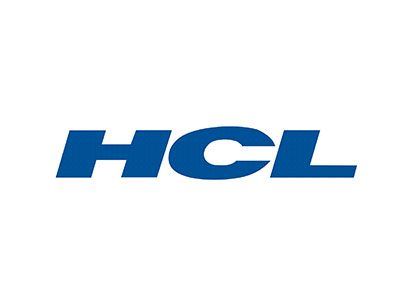HCL Technologies, (HCL), a leading global technology company, today announced a multi-phase hackathon, “Better Health Hackathon: #CodeforCOVID19,” to crowdsource technology innovation to find solutions for the immediate and long-term societal impact of the COVID-19 pandemic, including pandemic containment and prevention; diagnosis, treatment and therapeutic management; recovery and return to normal; and systemic solutions for future crises.
As part of the program, HCL has partnered with Microsoft and International SOS, the world’s largest medical and travel security services firm, who are providing business and technical oversight to the contest and feedback to team entries. In addition, the Better Health Hackathon is bringing together a wide-ranging and prestigious group of executives and companies, across multiple industries, to serve as judges and advisory panel members. This includes scholars from Johns Hopkins University, University of Cambridge, Tuck School of Business, The University of Queensland, Indian Institute of Technology, Kanpur, and subject matter experts from HCL.
The competition is open to technology innovators, entrepreneurs and problem solvers from the global developer community. To date the Better Health Hackathon has received more than 7500 registrations from 600+ unique organizations and academic institutions spanning 350 locations across 52 countries. To engage top talent in the coding community, the Hackathon is partnering with BeMyApp to leverage their expansive network of coders and tech enthusiasts. The Hackathon is open to eligible participants who are at least 18 years of age.
“The unique capabilities and strength of HCL’s global ecosystem of partners, coupled with the immense talent and best minds from the tech, developer and entrepreneur communities, enables us to make a significant contribution during the COVID-19 pandemic,” said Arthur Filip, Executive Vice President, Sales Transformation & Marketing, HCL Technologies. “Technology has a big role to play in alleviating the challenges brought on by the pandemic, addressing solutions for successful containment and the reorientation of business and society. We are honored to curate a very enthusiastic, committed and deeply talented global community to help us in this important work.”
Neeraj Balani, Managing Director, International SOS, India, said, “We are honored to be part of this initiative with our customer, HCL Technologies, and are confident that the outcomes will provide breakthroughs and benefits for employee health and wellness, which ultimately has a large impact on empowering business resilience, continuity and sustainability.”
Takuya Hirano, VP, Partner Services, Microsoft Corp., said, “This hackathon presents an opportunity for technology experts and innovative thinkers to showcase how advanced technology can help identify solutions to challenging problems facing societies. Technology can serve as a vehicle to drive new solutions that help improve the wellbeing of our communities and prepare us for future health challenges.”
Specifically, the HCL Better Health Hackathon: #CodeforCOVID19 will address the following areas:
• Prevention and containment: #StayAtHome
• This track explores solutions that better safeguard the most vulnerable in our communities, better communicate credible information, and help people better cope with the challenges of self-isolation. This track will examine: How can technology aid efforts to #FlattenTheCurve by offering a better quality of life to encourage people to #StayAtHome.
• Diagnosis, treatment & therapeutic management
• This track focuses on ways to help better protect and equip frontline healthcare workers and first responders, and to better serve those individuals and organizations seeking treatments and cures for COVID-19 with technology solutions.
• Recovery and return to normal
• This track dives into the next phase of society after shutdown orders are removed. In the absence of a tested and available vaccine or therapeutic treatments against COVID-19, how can technology safeguard communities against a relapse of an outbreak, once social distancing and other restrictions are lifted throughout the world, allowing people to return to public spaces.
• Systemic solutions for crises and pandemic management
• This track ideates innovative uses for next-gen technologies to plan for the long-term implications of COVID-19 and better prepare for future global pandemic-related challenges across healthcare and public services ecosystems.




